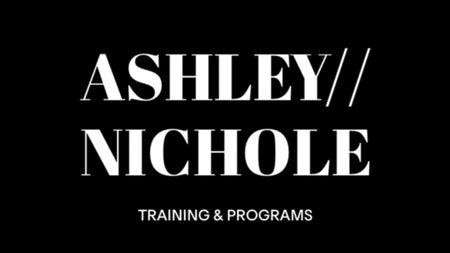
Fats, Carbs & Proteins “Oh My!”
A Macronutrient Filled Guide for Meal Planning & Preparation
By ASHLEY//NICHOLE, CPT Owner and Creator of Beauty by Day, Booty at Night Fitness & Lifestyle Brand

“I can’t eat that”
When it comes to meal prepping you shouldn’t fear the task itself. more so.. focus on fueling your body. And what’s going to make you, feel good.
We already know that processed foods are overwhelmingly high on calories and are linked to overeating & weight gain. Not only that but they are low on nutrients and have been proven to slow our bodies down, change our microorganisms and even break down the organs. 
Meal prepping might not be the easiest task for some. Others may prefer to make a plate at each meal & may have the flexibility in their schedules to do so. Whereas busy bodies like mine, living on the go may mean having your meals packed and ready to grab throughout the day. Assess your schedule & plan accordingly. This part is incredibly important if you want to succeed - as diet is key when it comes to living a healthy lifestyle.
I’ll share with you a couple of tips that I find make prepping your meals and eating out, just a little bit easier. So that you don’t have to worry about ruining your progress or hitting a block in the road.

If you’re not familiar with nutrition know that it is recommended to distribute macros based on when you work out or train.
So while the timing of carbohydrates, proteins, and fat intake significantly affect how the body responds to exercise - it is also varied by one’s activity levels throughout the day.

A marathon runner who works out first thing in the morning will likely need more carbs in the morning than a person who has a desk job and focuses on strength training after work.
In athletes it is best to incorporate carbs and protein before your workout to enhance muscle growth. The recommendation from the ISSN is 1-2 grams of carbohydrate per kilogram and 0.15-0.25 grams of protein per kilogram three to four hours before a workout.
It is good to know these recommendations though for most, a good rule of thumb is to eat a well-balanced meal 2-3 hours beforehand.

The post-workout (recovery meal) differs based on the type of workout. High intensity & endurance based suggests that you maintain a lower protein intake, and a higher portion of carbs. That’s because the body uses up glycogen (stored carbs) during endurance workouts and needs to replace those carbs to help with muscle synthesis.
For those who focus on strength training should eat more protein after a workout to help with muscle gains. Strength training doesn’t require as much glycogen, which is why protein is the primary needed after a resistance workout.
And if you’re eating for weight loss, prioritize protein throughout the day to help with appetite control. This will leave you feeling less hungry throughout the day and help curb any unwanted cravings.

Above anything else the quality of your macros matters much more than the timing. A nutrient based approach is far more beneficial than a diet fueled by unhealthy choices.
Opting for lean proteins, whole grains, healthy fats, fruits and vegetables will promote the biggest gains, no matter when you eat.
@muscleandfitness
@greenletes
@beautybydaybootyatnight
Topics: COOKING DIET DIETING FAT LOSS FIT FOR HER HEALTH HEALTHY FOODS LOW CARB MEAL PLANS MEALS AND SNACKS NUTRITION PLAN PROTEIN FOODS WEIGHT GAIN WEIGHT LOSS
